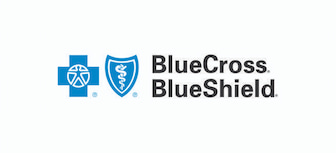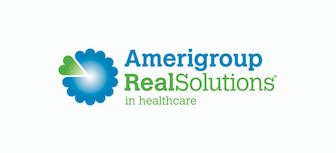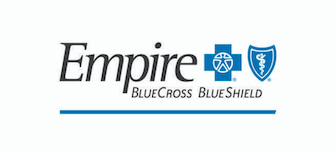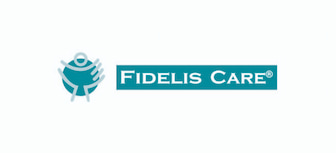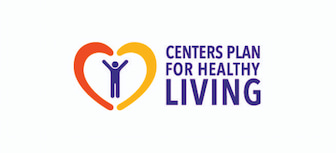How Do I Know Which Gynecologist in NYC Is Right for Me?
You need a specialist in gynecology who listens to your concerns, respects your decisions and supports your health through every stage of life. With so many doctors available through this directory, you must narrow down your choices. Learn which qualities make up the best gynecologists in New York City.
These factors include:
- Check the doctor’s credentials. Board certified gynecologists meet specific education, training and experience standards. They also stay up-to-date with the newest medical advancements.
- Find a local gynecologist. New York City is a huge place. Look for a doctor with an office conveniently located near your home or work.
- Choose a gender. Some people prefer a woman doctor for shared experience and more compassion.
- Read patient reviews. Look for consistently positive feedback on communication, bedside manner and professionalism, as well as successful outcomes.
- Don’t forget about languages spoken. If English isn’t your native tongue, you can likely find a gynecologist who speaks your language to enhance the communication.
- Decide if you need a sub-specialization. Pick a gynecologist whose specialty aligns with your health goals. You can find a New York City gynecologist who specializes in birth control, fertility or menopause care.
After you’ve found a suitable candidate, call the office and ask if the practice accepts your health insurance. Find out if they offer office hours fit your schedule. Some NYC gynecologists offer same-day or after-hours appointments. When you’re ready, schedule an appointment.
What Symptoms Require a Visit to a New York City Gynecologist?
Abnormal vaginal bleeding is one of the most common causes that lead to a gynecologist visit. When something isn’t right, your body sends you warning signs, especially when it’s related to your reproductive health.
Consult a NYC gynecology practice if you experience symptoms such as:
- Heavy bleeding between periods
- Heavy bleeding after intercourse
- Bleeding after menopause
- Menstruation that lasts more than seven days
- Chronic pelvic pain
- Genital itching
Look for any change, either in frequency or quality, in your vaginal discharge. A strong odor, a green or yellow tint or a thick texture often signals an infection. Intense lower abdominal pain, especially if it comes on suddenly, requires immediate attention. You may also feel sharp cramps, a heavy ache or pain that spreads to your back or legs. Don’t ignore pain that interferes with walking, sitting or your daily tasks.
These sensations may be caused by serious conditions like:
- An ovarian cyst rupture
- Uterine fibroids
- An ectopic pregnancy
- Endometriosis flare-ups
If you detect a lump in your vaginal area, labia or lower abdomen, get it checked out. Swelling, redness or tenderness may indicate an abscess, cyst or infection that needs immediate care. A prompt evaluation by your NYC gynecologist determines your diagnosis. Use this directory to schedule a consultation with one of the best gynecologists in New York City.
What Insurance Plans Cover Gynecology Services in New York City?
Most insurance plans cover essential women’s healthcare, but coverage differs by policy, plan type and network limitations. Knowing what to expect saves you money when you need access to necessary gynecological care. Visiting an in-network gynecologist, for example, provides optimal care at an affordable price.
The best insurance plans for gynecology in New York City include:
Before booking an appointment, carefully review your plan’s benefits and coverage to understand the key cost factors. Look for specialist visit co-payments, deductibles and limits on annual exams. Verify whether your plan includes increased out-of-network payments or demands referrals for NYC gynecology appointments. Learn what your out-of-pocket costs will likely be and what’s actually included with your insurance, which prevents surprise bills and enables you to get the most out of your benefits.
What Does It Take to Become a Gynecologist?
The best gynecologists in New York City begin their education with a four-year undergraduate degree. Then they must be accepted to and graduate from a four-year medical school, during which they learn anatomy, physiology, pharmacology and ethics. Then they gain clinical healthcare experience, both in school and in the real world, mainly through internships. Working directly with patients, they explore a variety of medical specialties, including gynecology.
After earning a Doctor of Medicine degree (MD) or a Doctor of Osteopathic Medicine degree (DO), they must get accepted into a residency program in obstetrics and gynecology. This hands-on training is where they truly develop the skills to become a confident, competent gynecologist.
During their two-year residency program, potential NYC gynecologists learn how to:
- Prepare women for prenatal care
- Deliver babies
- Assist in surgeries, such as C-sections and hysterectomies
- Diagnose and treat feminine reproductive health issues
- Learn to manage both routine care and emergencies
What Conditions Do Gynecologists Treat?
Your gynecologist in New York City focuses on your reproductive health from adolescence through menopause and beyond. Whether you're dealing with irregular menstruation cycles, navigating fertility challenges or seeking support during menopause, trust your medical specialist to take care of your health. Whenever you experience unusual symptoms in your pelvic region or reproductive organs, schedule an appointment with your NYC gynecologist.
Your doctor diagnoses and treats a variety of health conditions, including:
- Irregular periods
- Heavy or prolonged bleeding
- Painful cramps, called dysmenorrhea
- Difficulty conceiving
- Irregular ovulation
- Endometriosis
- Ovarian cysts
- Uterine fibroids
- Pelvic inflammatory disease
- Urinary tract infections, called UTIs
- Sexually transmitted infections like HPV, chlamydia or herpes
- Cervical cancer
- Ovarian cancer
- Uterine or endometrial cancer
- Painful urination not related to an infection
- Contraceptive counseling
- Permanent birth control options
- Pregnancy planning and pre-conception care
If you’re leaking urine when you laugh or sneeze, or if you feel pressure in your pelvis, you may be suffering from a pelvic floor disorder, which needs to be addressed. Routine Pap smears detect changes in your cervical cells, which prevents cancer. That’s why Pap smears are recommended annually.
Early detection protects your long-term health. The best gynecologists in New York City assess your symptoms and guide you toward effective treatment options. Don’t suffer needlessly. Find a nearby gynecologist through this directory.


 My BestDoc
My BestDoc
 Future Appointments
Future Appointments
 Settings
Settings
 Sign out
Sign out


